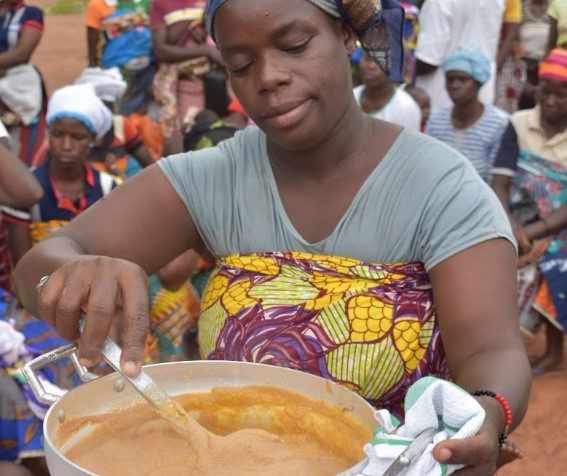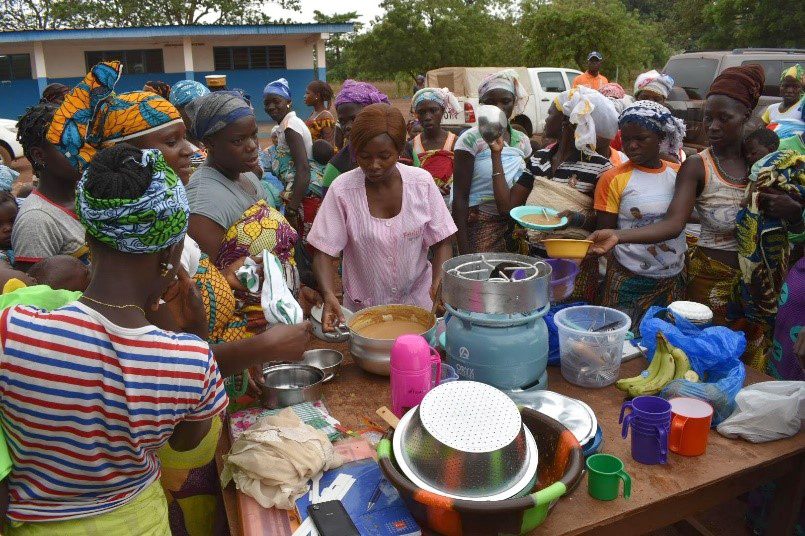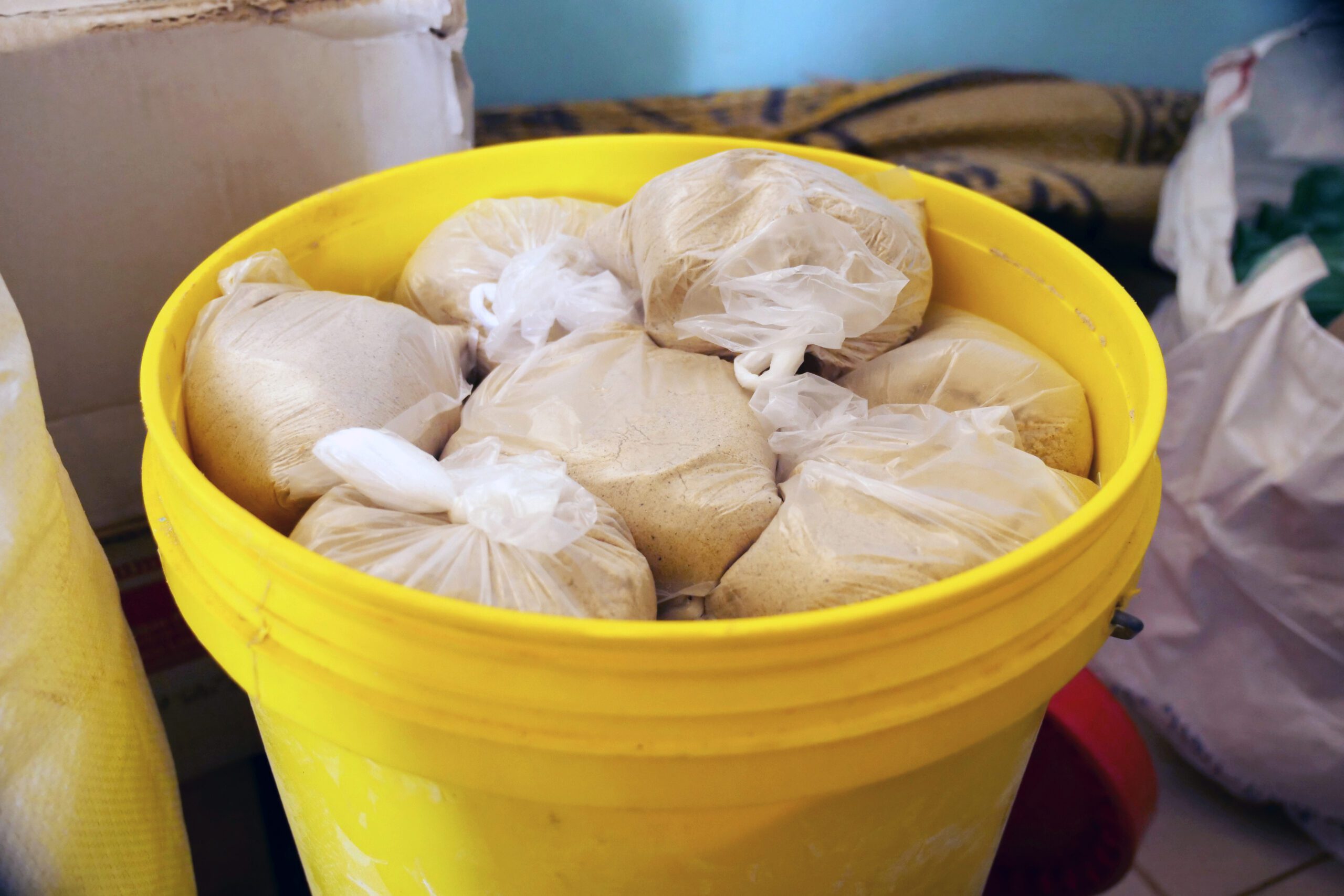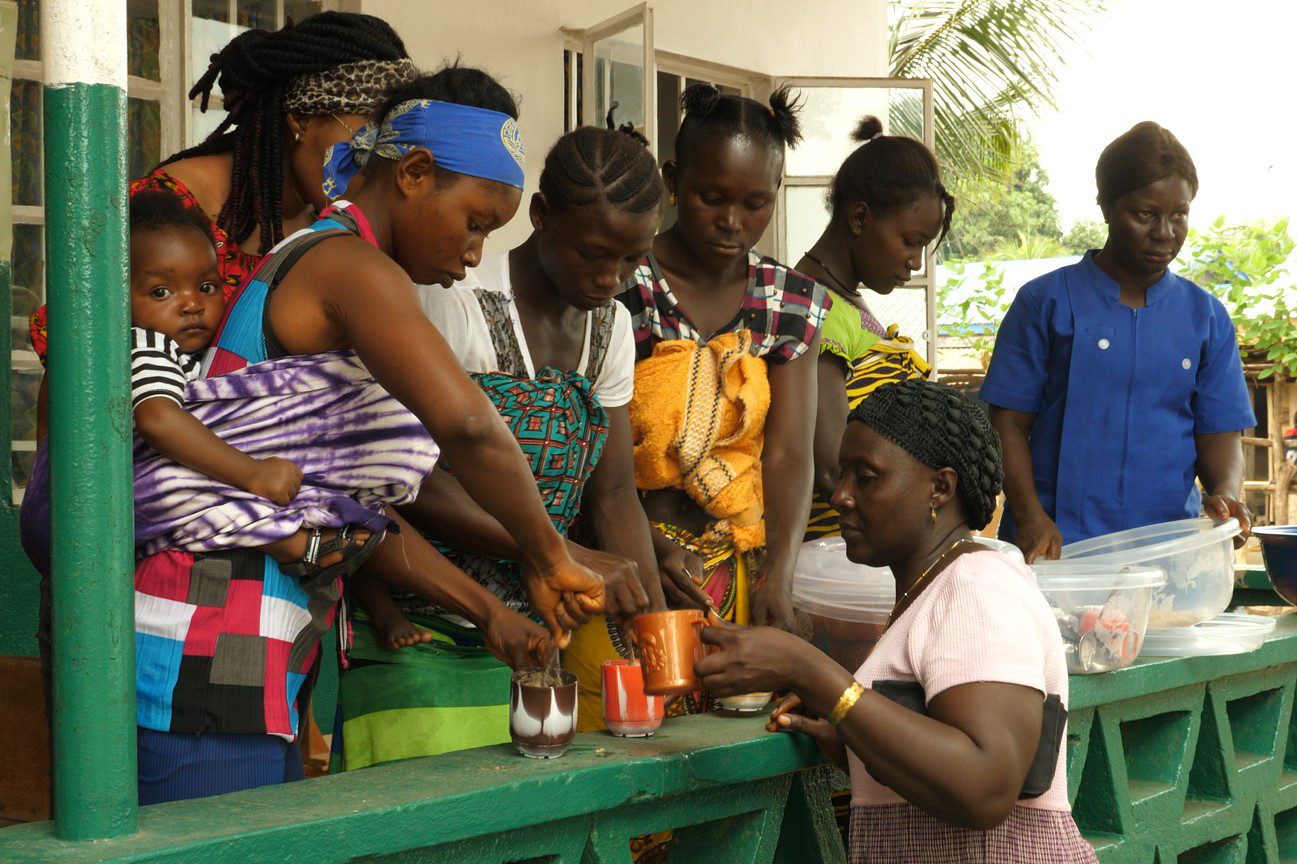The Humble but Mighty Powers of Porridge
Across West Africa, humble but mighty porridge is a simple remedy for moderate cases of malnutrition in children. It works because it’s inexpensive, utilizes accessible ingredients, is easy for mothers to prepare, is beloved by children, and can improve children’s weight and well-being in a matter of weeks. This is crucial in countries where malnutrition rates are high but resources to solve the problem are low.
It’s important to note that porridge is not a cure-all. In cases of acute malnutrition, supervised medical treatment becomes necessary. But feeding children fortified porridge works like the proverbial “apple a day” – it can help prevent malnutrition from getting to that point of severity in the first place.
Interestingly, there’s no single prescribed recipe for enriched porridge. Different countries, and different areas within those countries, use widely varying ingredients depending on which nutritious foods are locally available and culturally relevant.
Here are three varieties, from three countries where Helen Keller International supports programs that educate women about infant and young child nutrition and provides training to help them grow and prepare nourishing foods.
Ivory Coast: Mango, Peanut Butter, Maize, and Bananas
In northern Ivory Coast, the lasting effects of a civil conflict and weak health infrastructure have led to chronic hunger and malnutrition, especially among children.
Here, as in many other countries where we work, Helen Keller Intl supports and trains local partners to prevent malnutrition through essential, proven nutrition solutions that boost the health and survival of babies and young children.

One way of passing on those lessons is to host cooking demonstrations in communities at regular intervals throughout the year. In Ivory Coast, porridge is called bouillie enrichie. In each session, a presenter shows mothers (who are almost always the ones charged with family cooking duties) how to prepare a variety of low-cost, nutritious foods that can be introduced into their children’s diets at age-appropriate intervals between six and 24 months of age. The recipes are all based on local ingredients and easy for mothers to make at home.
At one of these cooking demonstrations in the village of Niofino, approximately 70 mothers with babies and small children in tow encircled Salimata Coulibaly, head of one of Helen Keller’s local partner organizations called Wo Pile Sanga (“Care for our Children”). As the community members watched and listened, one of the mothers involved in the program prepared a simple porridge made of mango, peanut butter, ground maize, and bananas, all of which are locally grown. In fact, much of the group sat in the shade of a giant mango tree during the demonstration.

Once the food was prepared, the women crowded around the table. They ladled the steaming porridge into bowls for their children, who went home with bellies full that day.
Our priority is to ensure that communities have access to filling, nutritious food like this every single day of the year.
Senegal: Black-eyed Peas and Peanuts
In the Sédhiou region of southern Senegal, Helen Keller International and its partners have trained community volunteers to make a special porridge mix of millet, corn, and rice flours combined with pulverized peanuts and black-eyed peas. The additional ingredients make it much more nutritious than the millet-only traditional Senegalese porridge. Protein-rich peanuts and black-eyes peas are both grown widely in Senegal, and they transform ruy – the Wolof word for porridge – into an almost medicinal food.

In the town of Samine, Helen Keller Intl taught members of the local women’s association how to make the dry powdered porridge mix. Over the two years since, they have gathered periodically to prepare mass quantities of it, which they distribute to health centers by the bucket. Children who are determined to be moderately malnourished are “prescribed” the porridge. Their mothers pick up bags of the mix from the dispensary at a subsidized cost.
Khady Dieme, president of the women’s association, says, “The porridge mix has most of the nutritional elements that children need, and it improves their health rapidly. It gives me great pleasure to do this work so that new mothers don’t experience the same [problems] that my children and grandchildren did.” In fact, most of the children in the program whose caregivers feed them the fortified porridge show improvements in their health within just a few weeks of monitoring.
Sierra Leone: Sesame, Sorghum, and Pigeon Peas
Pikin is the Sierra Leonean krio word for “child,” and as you’d guess, pikin mix is made just for kids. A blend of locally sourced sorghum, sesame, and pigeon peas, the dry mix creates a thick porridge when stirred with boiling water. At weekly service days hosted by health centers around the country, the porridge is distributed free of charge as an incentive for women to bring their children to the clinic for check-ups and routine services such as vitamin A supplementation. While there, the women receive a demonstration on how to make the porridge mix for their children at home.

Both pigeon peas and sesame are a good source of calories and protein as well as other essential vitamins and minerals. And all three ingredients – sorghum, sesame, and pigeon peas – are widely grown and relatively inexpensive to buy in Sierra Leone, making it an attractive option to nourish small children. What’s more, children like the taste of the porridge, which makes them as happy to eat it as their mothers are to feed it to them.
Learn more about our work to nourish families and eliminate malnutrition around the world.









